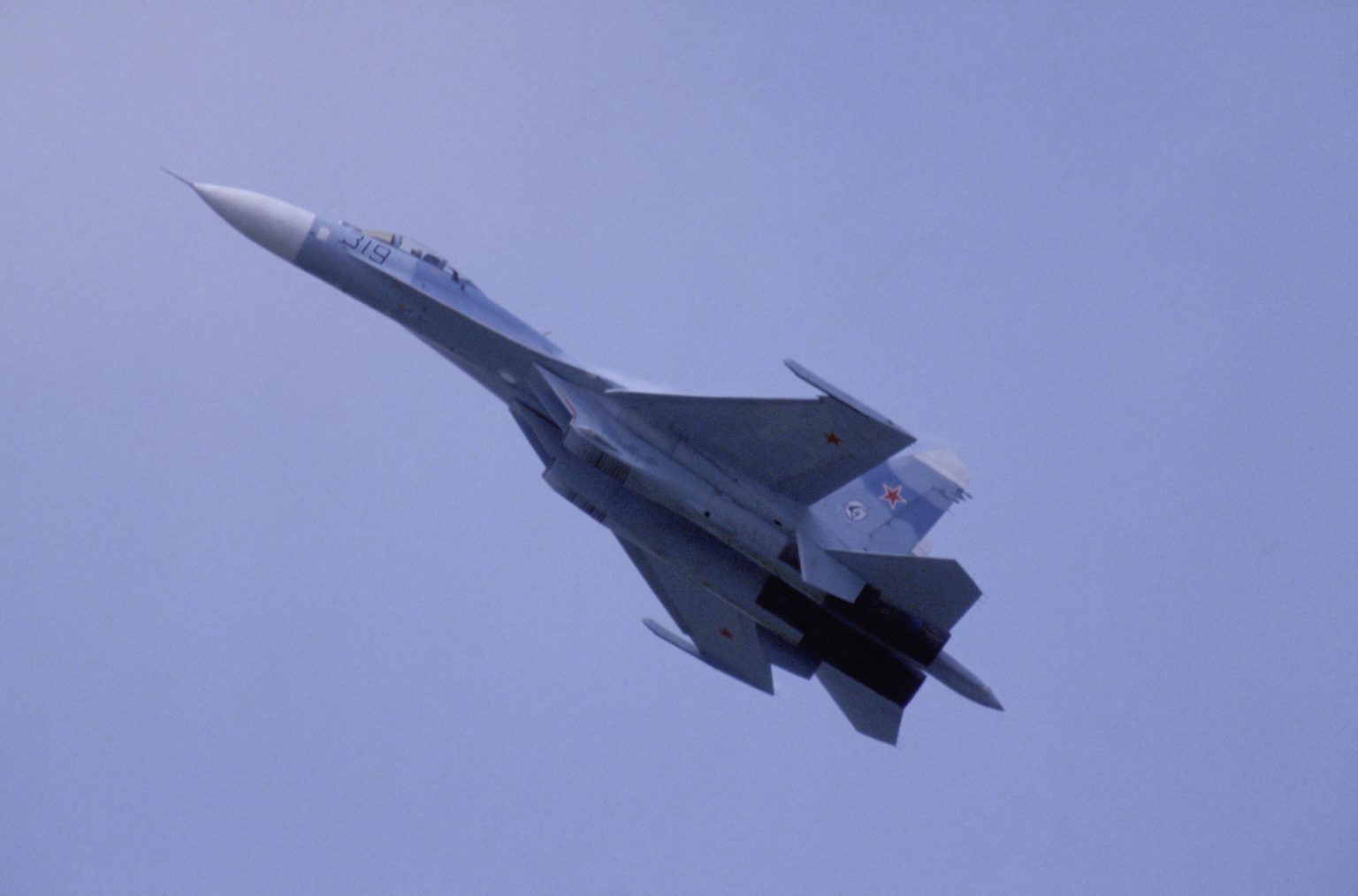Russian forces downed their own Sukhoi Su-27 fighter jet over Crimea accidentally, according to Ukraine’s Navy spokesman Dmytro Pletenchuk. The incident occurred due to a state of heightened combat readiness over the occupied peninsula. The pilot ejected safely and was rescued, while Russian Telegram channels shared footage of the burning plane and the pilot’s parachute. The Crimean Wind Telegram channel claimed the plane was shot down accidentally by Russian forces after taking off from the Belbek military airfield.
Following the incident, Ukraine confirmed that the downed aircraft belonged to the Russian Federation and was destroyed by their own forces. Pletenchuk attributed the incident to the human factor, stating that one of the operators was eager to receive a medal and didn’t bother to identify the plane. This incident adds to the heavy aircraft losses suffered by Russia’s Air Force in recent months, including several warplanes such as Su-34 fighter bombers, Su-35 fighter jets, and an A-50 military spy plane. Meanwhile, Ukraine is expecting a boost in its aviation capabilities with the upcoming operation of F-16 fighter jets supplied by allies.
A coalition of countries has pledged to provide fourth-generation F-16 jets to Ukraine, which offer technological advancements over the Soviet-era MiG and Sukhoi jets currently utilized by Kyiv. Belgium announced a military assistance package to maintain and support the jets, while Denmark stated that Ukraine could receive their F-16 fighter jets as early as the summer. Russian President Vladimir Putin warned that these aircraft would be legitimate targets for Russian pilots, even on airfields of third countries, and vowed to destroy them similar to other equipment such as tanks. However, he dismissed speculation that Russia would attack NATO members as “nonsense.”
With Ukraine set to receive F-16 fighter jets from allies, tensions are likely to escalate further between Russia and Ukraine. The accidental downing of the Sukhoi Su-27 fighter jet highlights the risks associated with combat operations, particularly in contested regions like Crimea. As both countries continue to reinforce their military capabilities, the potential for further incidents and clashes between their forces remains a significant concern. It is essential for diplomatic efforts to be intensified to prevent the escalation of the conflict and promote stability in the region. The situation underscores the complex dynamics at play in the ongoing conflict between Russia and Ukraine and the broader geopolitical implications of their actions.


